How Can Supplements Help My Joint Pain?
Joint pain is a common ailment that affects a lot of people, including athletes and can come as a result of injury or arthritis. The pain can occur in just one joint or in many across the body. Joint pain refers to discomfort, aches, and soreness in any of the body’s joints. Joint pain is a common complaint.

Collagen makes up our bone structure, and so as we age our bodies naturally reduce in collagen levels, and there are several things that we can do to keep flexible and healthy. We have a whole Joint Health section dedicated to joint health supplements.
Eating calcium rich foods can also help maintain healthy joint, but additional supplements can be a great way to take care of your joint health if you are suffering from joint pains or aches. Calcium supplements, Vitamin D supplements and Vitamin K supplements are all great ways to contribute to the maintenance of normal bones.
Cod Liver Oil
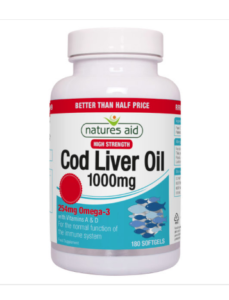
It is believed that the omega-3 fatty acids in cod liver oil may help reduce inflammation in the joints and protect against damage. Thanks to cod liver oil’s ability to reduce inflammation, it may help reduce joint pain in those who suffer from rheumatoid arthritis.
Glucosamine
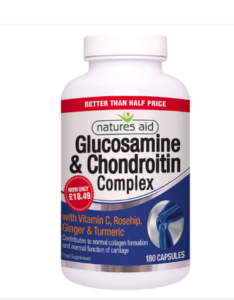
Glucosamine is certainly important in our bodies – it’s one of the building blocks of cartilage, ligaments and tendons – all possible causes of pain in a creaky joint. The theory is, then, that supplying our bodies with more of this building block might give it what it needs to make repairs.
Vitamin D
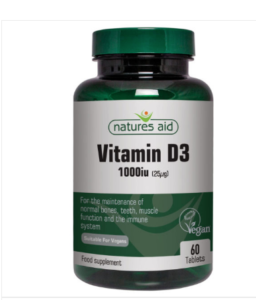
Vitamin D is a great supplement to help reduce joint pain. It plays a role in the process of cell division and is helpful in the normal absorption and utilisation of calcium and phosphorus. Vitamin D also helps to maintain normal blood calcium levels as well as reducing the risk of falling associated with postural instability and muscle weakness.
Vitamin K2
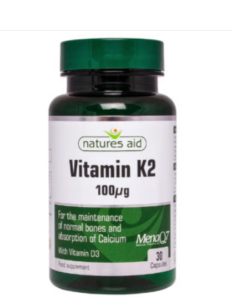
Natures Aid MenaQ7, natural vitamin K2 has been formulated with vitamin D3 for the maintenance of normal bones and absorption of calcium.
Calcium
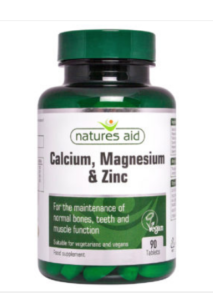
Calcium helps to reduce the loss of bone mineral in post-menopausal women. Low bone mineral density is a risk factor for osteoporotic bone fractures. Calcium a contributes to the maintenance of normal bones and teeth. Magnesium also helps support the maintenance of normal bones and teeth and contributes to normal muscle function and a reduction in tiredness & fatigue




Leave a Reply
Want to join the discussion?Feel free to contribute!